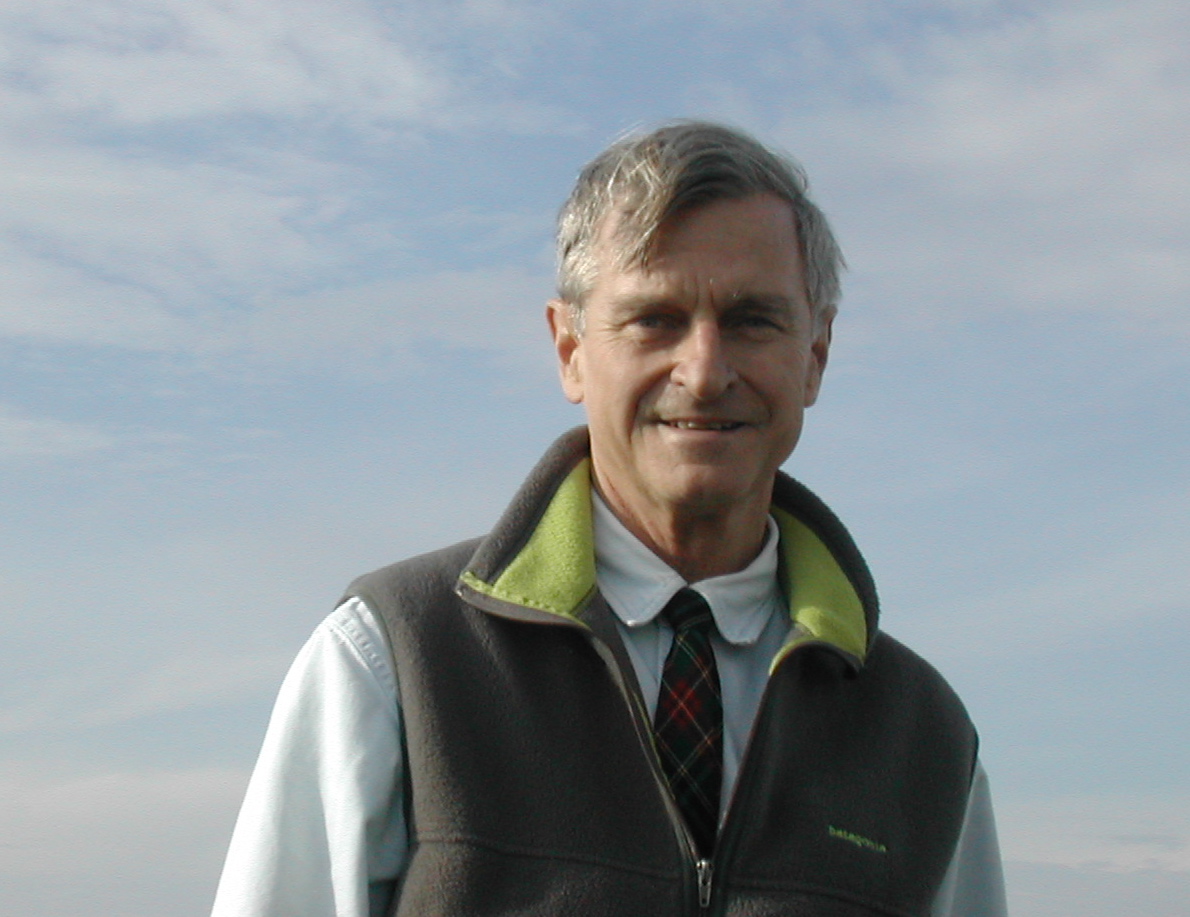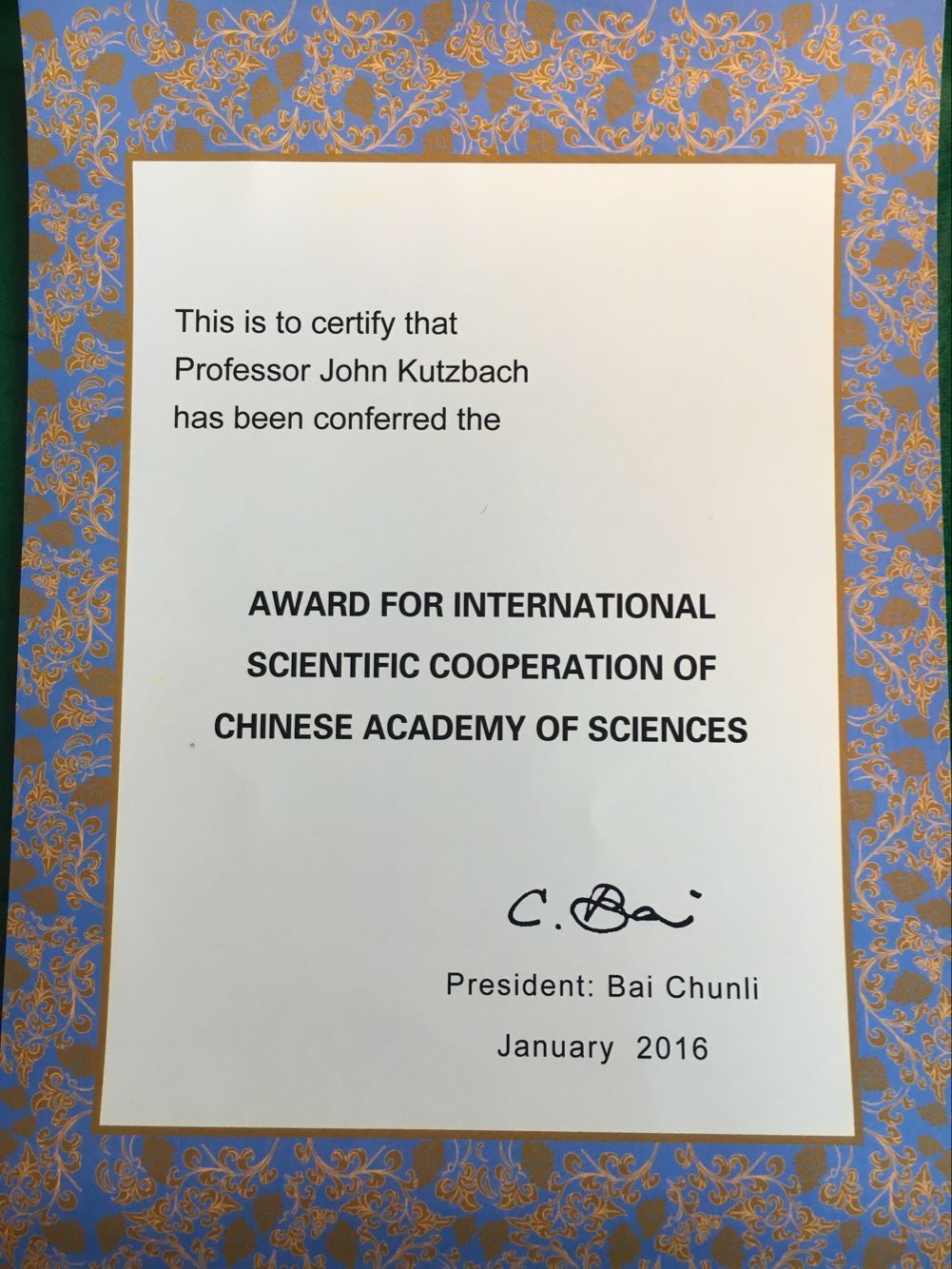
Prof. John Kutzbach, wins the “Award for International Scientific Cooperation of Chinese Academy of Sciences”. His enthusiastic support and outstanding contribution to science and technology, productive collaboration with CAS and the training of talents are genuinely appreciated by his colleagues at CAS. With the recommendations from IEECAS and the reviews and selection made by the appraisal committee, CAS has decided to confer upon him the 2015 Award for International Scientific Cooperation.
John Kutzbach is a professor, and a long-term director of Center for Climate Research, University of Wisconsin—Madison. He is an internationally recognized first class scientist on climate numerical simulation. He is one of the pioneers and founders in paleoclimate modelling, and he was elected a member of National Academy of Sciences in 2006.
As one of the forerunners of paleoclimate modelers, he has studied the responding and feeding back mechanisms in the simulation of changing earth process through groundbreaking connections of climatology, geology and ecology sciences with numerical method of physics and bio-geochemistry. He has successfully revealed the mechanism and driving force of climatic environmental changes at various tectonic to orbital time scales. His findings have opened up a new direction of human beings for a deeper understanding of the past, present and future changes of earth system, which also initiated a new era of public perception of climate science.
In his 30 years of collaboration with CAS, Prof. Kutzbach has pushed Chinese earth science into a new dynamic stage combining research of traditional geology and numerical simulation. He has co-published many papers of collaborated study results with scientists from CAS on internationally esteemed journals, such as Nature,Science, etc. He has promoted the generations of major joint projects sponsored by NSFs of both China and USA. He has made indelible contribution to the fast development of global change study of CAS, and to helping Chinese scientist entering the global stage and making original breakthroughs in Earth System Science.
He passes his new ideas, new techniques and new methods selflessly to Chinese colleagues, and contributes outstandingly to the growth of excellent leading talents in CAS. For many years, he keeps inviting key researcher from CAS to visit US carrying out collaborations. He has also held series lectures of climate dynamics in China. Among the collaborators once worked in his laboratory, three have become a member of the Chinese Academy of Sciences, and many have become winner of National Science Foundation for Outstanding Young Scholars.

 © 2015 Institute of Earth Environment,CAS
© 2015 Institute of Earth Environment,CAS  © 2015 Institute of Earth Environment,CAS
© 2015 Institute of Earth Environment,CAS